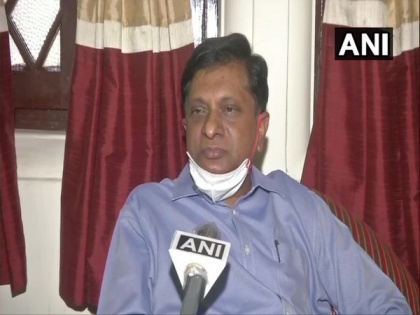Change in IAS cadre rules will help Centre overcome shortage of officers: Apurva Chandra
By ANI | Published: January 24, 2022 04:08 PM2022-01-24T16:08:50+5:302022-01-24T16:15:07+5:30
The whole idea of changing Indian Administrative Service (IAS) cadre rules is to make sure the central government gets more officers because as of now, it has only 18 per cent in deputation compared to the requirement of 40 per cent, said Apurva Chandra, Secretary Ministry of Information and Broadcasting on Monday.

Change in IAS cadre rules will help Centre overcome shortage of officers: Apurva Chandra
The whole idea of changing Indian Administrative Service (IAS) cadre rules is to make sure the central government gets more officers because as of now, it has only 18 per cent in deputation compared to the requirement of 40 per cent, said Apurva Chandra, Secretary Ministry of Information and Broadcasting on Monday.
He also said that the deputation of officers was 25 per cent in 2014 but now it has declined.
Describing the need for such changes, Chandra said that it is important because the services form the backbone of governance and policies in the country.
"The role of Centre is to frame policies and to also make sure that the schemes are implemented and states also do their own role. However, governance will take a backseat if there is an inadequate number of officials at the central government," he said.
On being asked what is the hurry in implementing these changes, the secretary stated that it is an emergency situation because the administrative structure of the central government itself suffers in the case of less number of officials.
"This number has come down considerably from 2014 till now. I have experience working at both the Centre and the state and it helps," he said citing his own example.
Chandra was also asked the reason behind the officers becoming captives of states.
He said that the character of the IAS and IPS is an all-India service.
"If we become captive to a state, then there is no difference between a provisional service and an IAS officer. When you are captive in the state, it is true that you get faster promotions but your vision and implementation are confined to the states only," Chandra added.
He also said, "When you come to the central deputation you have wide experience and knowledge and can also deal with matters of international importance."
The Secretary called it an "evolving situation" when he was asked whether this is indeed a threat to federalism.
"We know at least a few years ago states were suspending officers at the drop of a hat. Their suspension happened. Even now and then, people were running to the centre to solve the issue. Forget about the politics but for the experience and career of officer, it is important to get experience both at the Centre as well as the state," he added.
Earlier on Sunday, Kerala Chief Minister Pinarayi Vijayan had written to Prime Minister Narendra Modi requesting him to drop the proposed amendments to the Indian Administrative Service Cadre Rules as it would "weaken cooperative federalism".
Meanwhile, Rajasthan Chief Minister Ashok Gehlot also wrote to PM Modi opposing the Centre's proposed amendments to the Indian Administrative Service Cadre Rules and said the move will violate the constitutional jurisdiction prescribed for the Central and State Governments and will reduce the spirit of working fearlessly and faithfully in the All-India Service officers posted in the state.
The Centre has proposed an amendment to the IAS (Cadre) Rules, 1954, which would enable it to post IAS officers on central deputation, bypassing reservations of state governments.
( With inputs from ANI )
Disclaimer: This post has been auto-published from an agency feed without any modifications to the text and has not been reviewed by an editor
Open in app